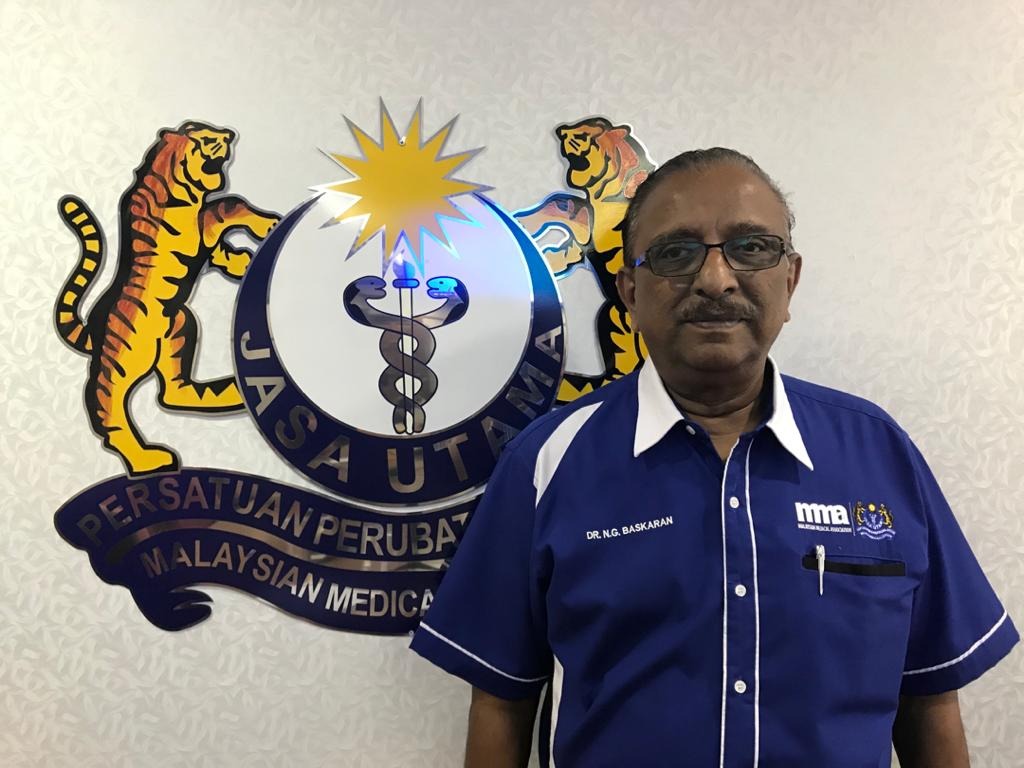MMA welcomes the government’s Agenda Nasional Malaysia Sihat (ANMS) 2020 – 2030 – a national 10-year plan for health care focusing on health promotion, community empowerment and a clean environment. It was reported that its 1st phase (2020-2022) will focus on keeping Malaysians from all backgrounds healthy physically, mentally and socially.
These are welcomed initiatives under the 1st phase which promote better health management among Malaysians, however it is hoped that the planners and policy implementation team would also give urgent attention to the structural and fundamental issues in our health care system.
The Health Crisis represents a critical and timely opportunity to review, reflect, study and to change, to adapt; ultimately to improve the health of Malaysians and of the Nation.
The recovery phase of the MCO may be the best time to initiate these much needed reforms in our healthcare system. All we need now is the political will.
Universal Health Coverage and the enhancement of primary care should be emphasised. Malaysia’s primary care practitioners providing care for the majority of the country’s workforce and families is an under-utilised private health care platform. The 7,000 MOH trained GPs are well distributed in the country and can serve as an extension of MOH through the establishment of a one stop crisis virtual centre with the sharing of more information.
But disappointingly, we have seen a lack of engagement with the GPs throughout the management of the Covid-19 crisis. Singapore, on the other hand, has capitalised on making GPs their surveillance partners at the community level by setting up Public Health Preparedness Clinics.
The Malaysian government should be looking into the numerous advantages of a public-private partnership with the GP clinics. Such a move will also help decongest our country’s public health clinics and hospital green zones.
It is also hoped that MOH will look into more allocation in resources. The share of the government’s healthcare budget needs a planned, sustainable escalation to meet WHO benchmarks. Our Health DG has often highlighted the auditor general’s reports stating that the MOH is underfunded, overworked and understaffed.
More long term planning for permanent positions for our contract medical officers, allied health workers and government specialists need to be urgently looked into. Malaysia has a high output of medical graduates and this should be seen as an opportunity. Human capital is fundamental of any health system. Various issues of mal-distribution of health care workers, fair remuneration and work-life balance need to be prioritised.
Ultimately we need to recognise that the decades of growth of the private secondary and tertiary care hospitals has enabled Malaysians to access modern diagnostic and treatment modalities. However the distribution is skewed towards affluent and urban communities. The rising inequity in access should also be looked into as a priority, as the increase in Out-Of-Pocket (OOP) expenses for chronic and catastrophic illness portends a slide in overall health.
Health reform is urgently needed in both health care financing and health care delivery and the MMA would like to reiterate its readiness to help the national effort towards improving health for all Malaysians.
The government cannot continue to be the operator and regulator at the same time. Separation of power and governance structure must be in place to safe guard the interest of the patient. This should also be part of the agenda and a timeline should be set to achieve that.
Digitisation of healthcare — the bedrock of a future health system, will surely help to connect and break the silos. This can lead to standardisation in reporting and medical records. A budget should be allocated for a national EMR and a timeline should be set to achieve this. While focusing on EMR, it’s prudent to also look into the infrastructure of the internet connectivity and hardware.
The Sihat Malaysia 2020 was quite comprehensive. Hundreds of man hours of various stakeholders’ engagements were spent and we urge the MOH to work from that.
Dr N Ganabaskaran is president of the Malaysian Medical Association.
- This is the personal opinion of the writer or publication and does not necessarily represent the views of CodeBlue.





